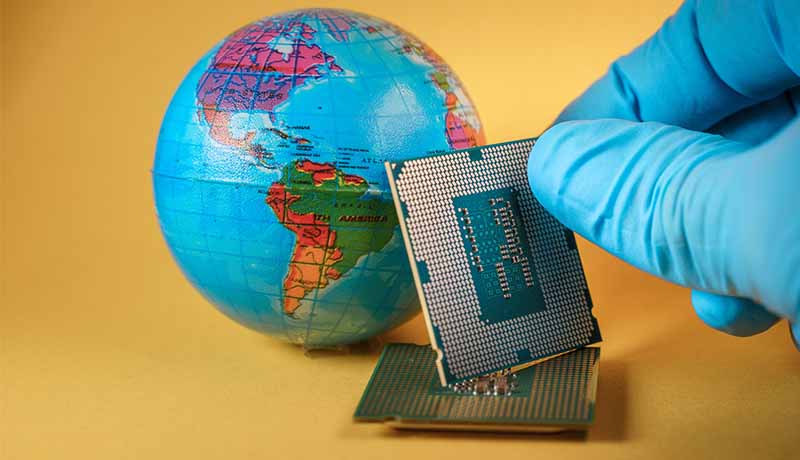
By Omar Abdulla
As I was checking out the new PlayStation consoles in the local mall a few weeks ago, I realized the prices have become outrageous. By doing some research on what is the cause, I found that there is a shortage of semi-conductor chips manufactured globally.
Semi-conductor chips are included in thousands of products, including computing devices, smartphones, appliances, gaming hardware, and medical equipment. It occurred to me that this might be the reason gaming consoles are so expensive and hard to find.
Hiroki Totoki, Sony’s chief financial officer, told investors late last month that ‘Logistics issues and parts shortages had become more severe’.
‘Despite previous warnings that any resurgence in Covid-19 may affect the company’s components supply, PS5 sales in the third quarter ended September were weaker than expected,’ Totoki added.
PlayStation 5 reached 10 million units sold last July, making it the fastest Sony console to do so. However, it has fallen behind the sales pace of its predecessor PlayStation 4. Sony struggled to get enough units distributed globally for many months during the first year of the PS5, making it hard to find the console for the rest of its run according to many customers trying to buy the consoles.
This is not just the case for Sony, many top industries and companies are facing an issue. According to a statement on Toyota’s website, ‘The company still expects to achieve its annual production forecast of nine million vehicles – adjusted down in September from 9.3 million – by the end of its fiscal year in March.’
Company officials said they were considering strategies for resolving supply chain issues, observing that “We expect the shortage of semiconductors to continue in the long term.”
Apple warned that the shortage may have an adverse impact on iPhone sales because of the shortage. Major iPhone supplier Foxconn says that it expects the ongoing chip shortage to continue well into the second half of next year, prolonging the struggles of manufacturers, including Apple, to keep up with consumer demand.
Nowadays, modern products often include multiple chips that perform different functions, and it is common to find more than one in a single device. Some tech companies began stockpiling chips during the pandemic and advanced ordering them, causing others to struggle to get these components.
Laptops, tablets, and webcams have been vital to those working from home, and chip factories did close during lockdowns.
While manufacturers have so far been able to catch up with demand eventually, consumers have occasionally struggled to buy the devices they want.
According to the CEO of semiconductor company Marvell Technology, ‘The semiconductor chip shortage will likely continue into 2022 and possibly beyond.’
During a CNBC Technology Executive Council event, Marvell CEO Matt Murphy said, “Every single end market for semiconductors is up simultaneously at the moment; I’ve been in this industry 27 years, and I’ve never seen that before.” He continued, “If the trend continues, it’s going to be a very painful period, including in 2022.” The growth in chip manufacturing capacity has been announced by several companies, including Murphy’s firm, however, he explained that his company is fabless and that it works with contract manufacturers for its designs, so “that won’t kick in until 2023 and 2024.”
The number of transistors in one semiconductor chip is as much as those in the Great Pyramid of Giza, and today around the world there are more than 100 billion integrated circuits in use — nearly as many as the stars in our corner of the Milky Way galaxy. It is truly a modern marvel, a feat of human ingenuity and engineering unmatched by any other industry. It is crucial to various industries that these chips be produced, so hopefully soon production of semi-conductor chips will increase, and we will be able to locate your favorite gaming console easily.
